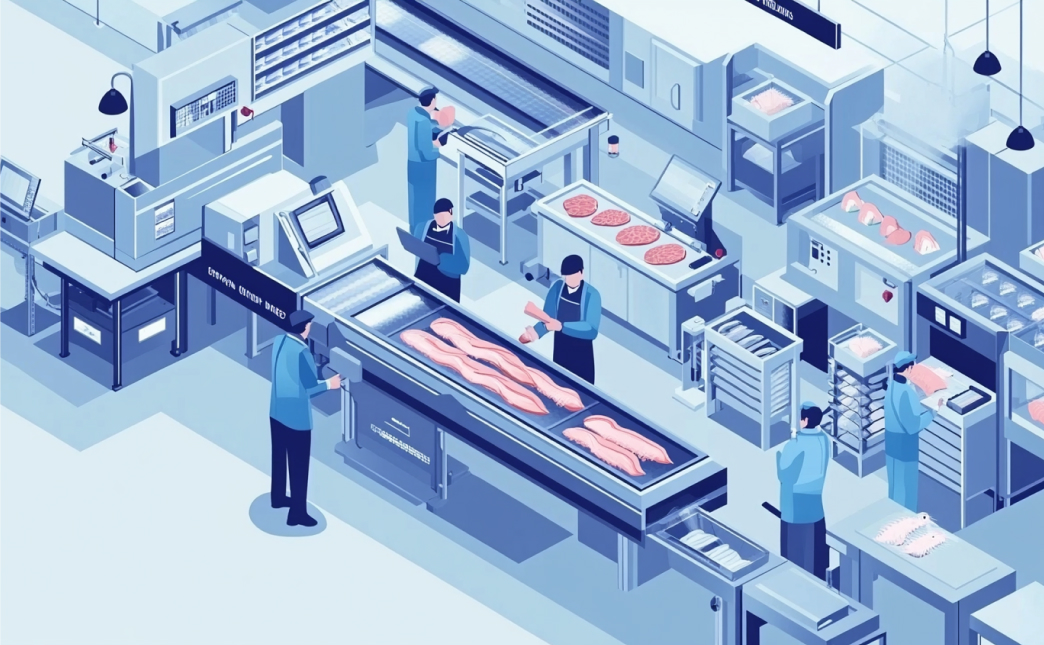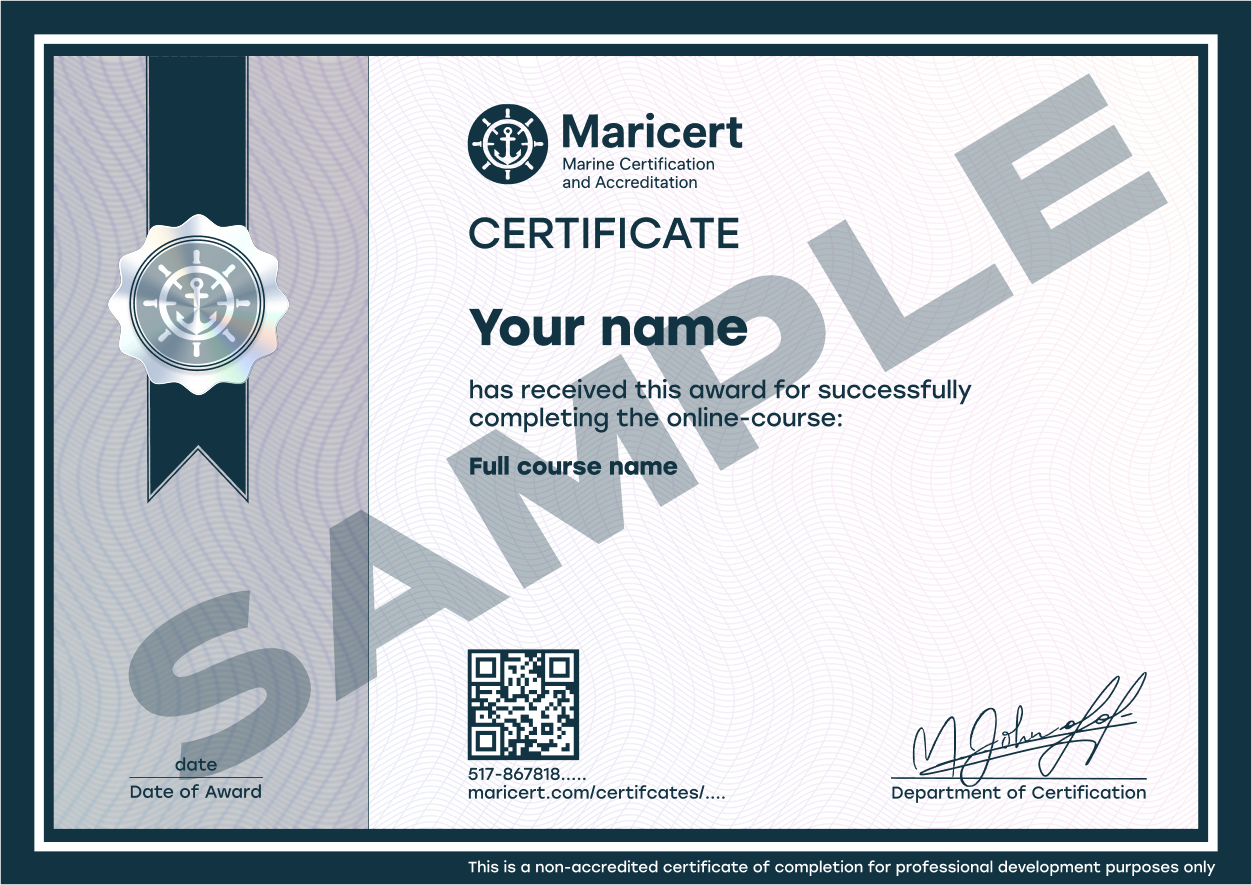Sustainable fish processing: technology, efficiency, and innovation
LESSONS
- Glossary
- Fish processing operations: focus on long-term viability
- Sustainable fish processing: key themes and tools
- Fish processing LCA: methodology and use
- LCA in fish processing: strategies and impacts
- Sustainability challenges in fish processing
- Sustainability in fish pre-processing and canning
- Sustainable smoking in fish processing
- Cold chain operations in fish processing
- Sustainable surimi production
- Fishmeal and oil: process and sustainability
- Overview and key process stages
- Fishmeal optimization: impacts and practices
- Future of fish processing: fermentation and cleaner production
- Sustainability strategies in fish processing
- Onboard processing: quality with minimal impact
- On-board plant design: function and sustainability
- Montlake process in on-board waste and safety management
- References
- Test

Duration
7–9 hours for studying the theoretical material, 2 hours for completing the final test.
Certificate
Upon successful completion of the online course, you will receive a certificate titled:
"Advanced Seafood Processing & Safety: Extending Shelf Life".
lifetime certificate

Database registration
Each certificate has a unique serial number, is registered in our database, and includes a QR code for authenticity verification. Add your certificates when sending your CV, and your future employer will be able to verify them.
Course description
This course explores the integration of sustainability principles into fish processing operations. it focuses on clean technologies, efficient resource use, and innovative waste recovery methods that reduce environmental impact. learners will examine the entire value chain—from energy and water use to effluent treatment, by-product utilization, and carbon footprint analysis. special emphasis is placed on life cycle assessment (lca), cleaner production (cp), and circular economy strategies. the course provides a practical and research-based foundation to support environmentally responsible, socially fair, and economically viable fish processing across industrial and artisanal systems.
What you’ll learn
- sustainable processing methods for fish and seafood
- strategies to reduce energy, water use, and emissions
- effluent management and waste-to-resource innovations
- use of lca and carbon footprinting in seafood facilities
- value-added utilization of fish by-products
- regulatory context for sustainable operations
- cleaner production and circular economy applications
Who this course is for
- fish processing professionals and plant operators
- students in marine sciences, environmental engineering, and food technology
- sustainability officers and auditors in seafood industries
- policymakers and ngo staff working in blue economy sectors
- entrepreneurs and innovators in eco-friendly fish product development
- anyone aiming to modernize fish processing with sustainable practices
